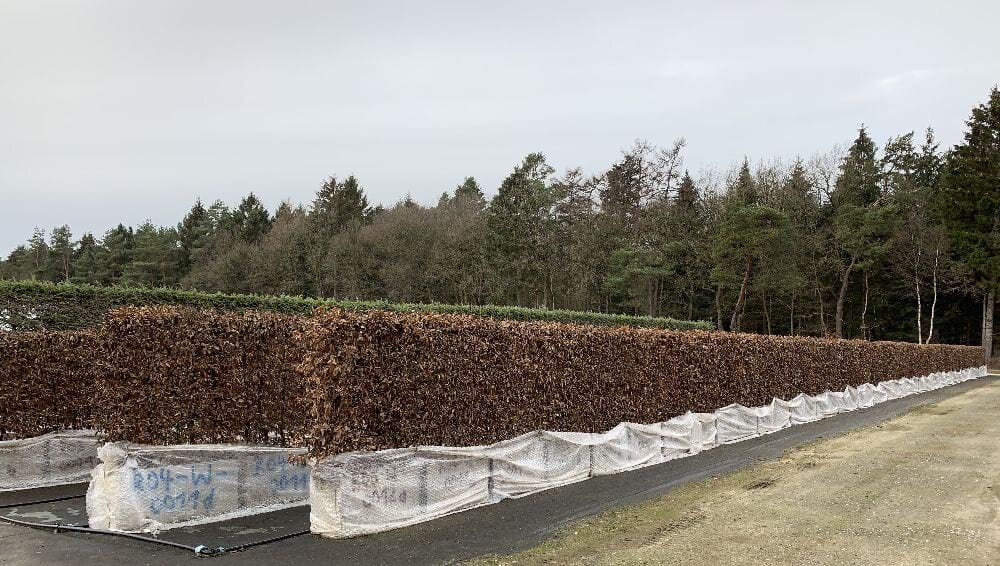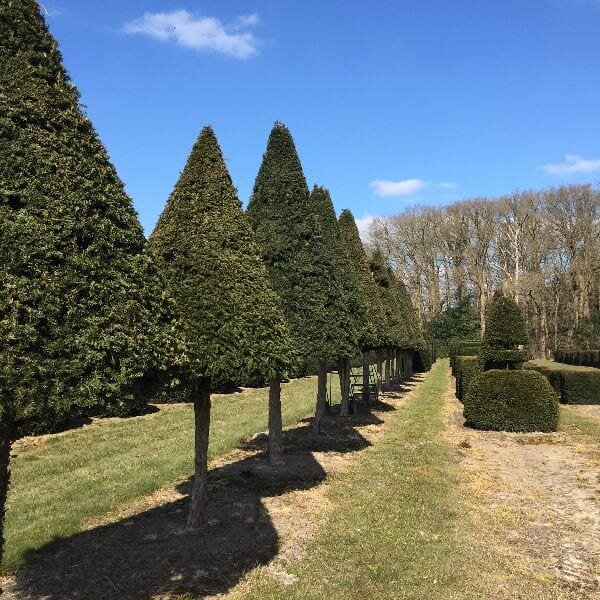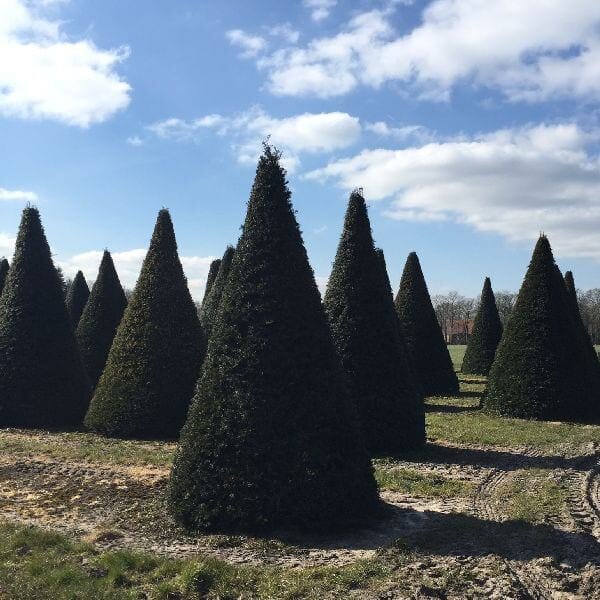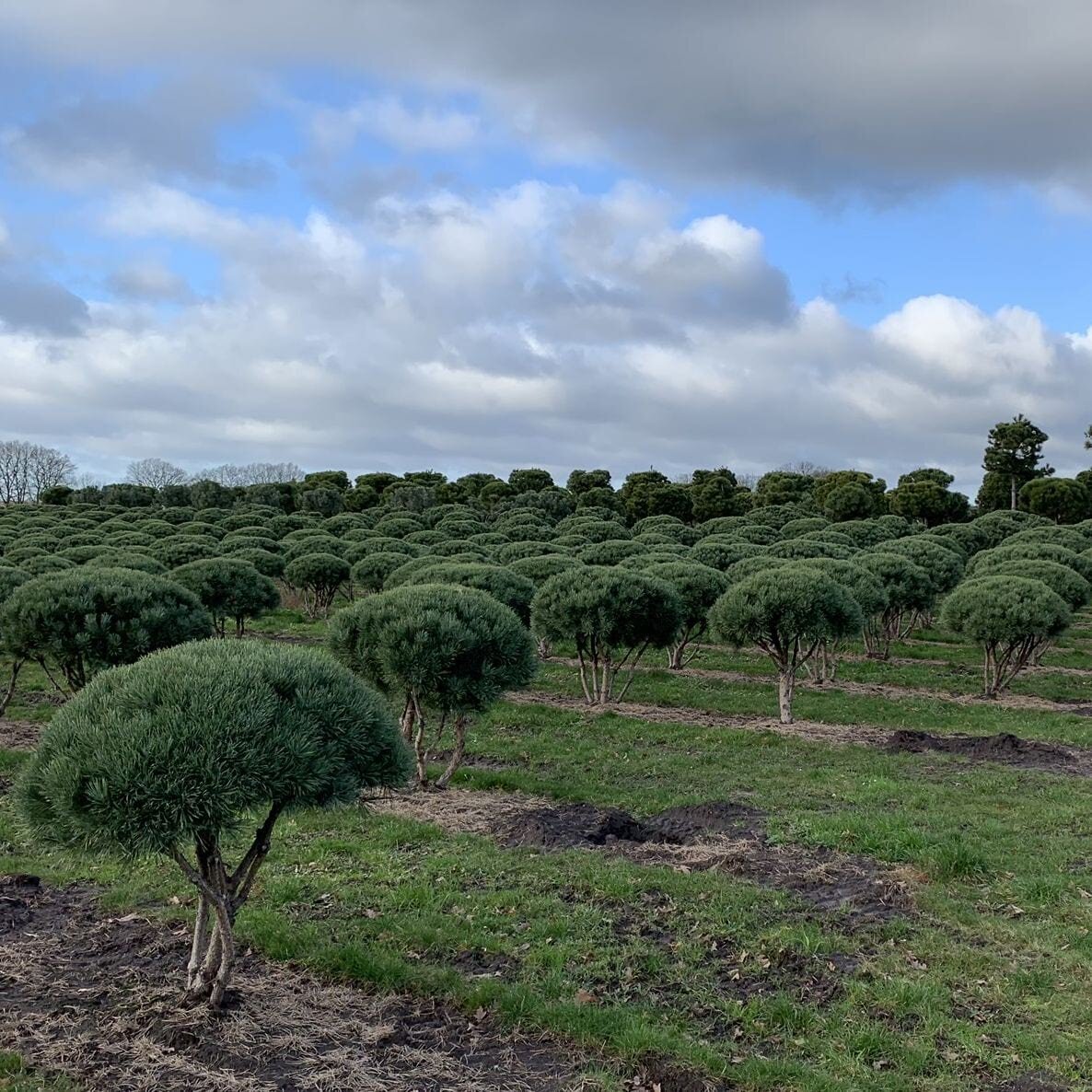Plant Passports – we’re on the case
It seems strange to be writing about Plant Passports when we are not allowed to travel ourselves right now because of Covid restrictions, but they are a hot topic in the horticultural world as post-Brexit regulations bite.
I have written before about some of the wonderful suppliers we have on the continent: including the acclaimed German nurseries Bruns and Lorenz von Ehren (LVE) that deliver plants of the highest quality. On one scheme five years ago we created an instant hedge in a London garden with plants that LVE had specially grown for us over the course of a year.
All nursery images taken at Bruns, Germany
Another is our specialist bamboo supplier in Italy, which has provided us with 6-metre-tall plants (Phyllostachys vivax) that have instant impact. In one case we used these massive established canes to shield a courtyard from an overlooking apartment building. They can make for a beautiful architectural feature.
And because we want to continue to import these stunning specimens, we have been training ourselves up in post-Brexit Plant Passports, Phytosanitary Certificates and PEACH – no, not the gorgeous fruit but the Procedure for Electronic Application for Certificates from the Horticultural Marketing Inspectorate.
PEACH and the other procedures we need to comply with when importing plants, trees and some plant products may sound like a mouthful but there are important principles behind all this: biosecurity, plant health, traceability and strengthening protected zones from the risk of pests and diseases.
Since 1 January these new processes have come into effect for imports from the EU, Switzerland and Liechtenstein. To give you a taste of what is required:
Each consignment needs a Phytosanitary Certificate (PC) from the plant health authority in the supplier’s country
There will be inspections when plants arrive in the UK
Plant Passports will have to be fixed to every specimen and are needed when we pass a plant on to an architect, landscaper or professional gardener.
Large specimens imported from Europe and installed by our team.
But the good news is that we are fully on the case, we have registered with the right authorities and we will be keeping traceability records for three years as required.
We can demonstrate our years of expertise in pests and disease, we have our Biosecurity Policy in place and we’re aware of pitfalls, such as common mistakes over labelling.
So for the best specimens from Europe’s top nurseries to transform your garden into a living artwork, you can rely on Alaster Anderson.
You can reach us on 0207 305 7183 or email at enquire@alasteranderson.com








